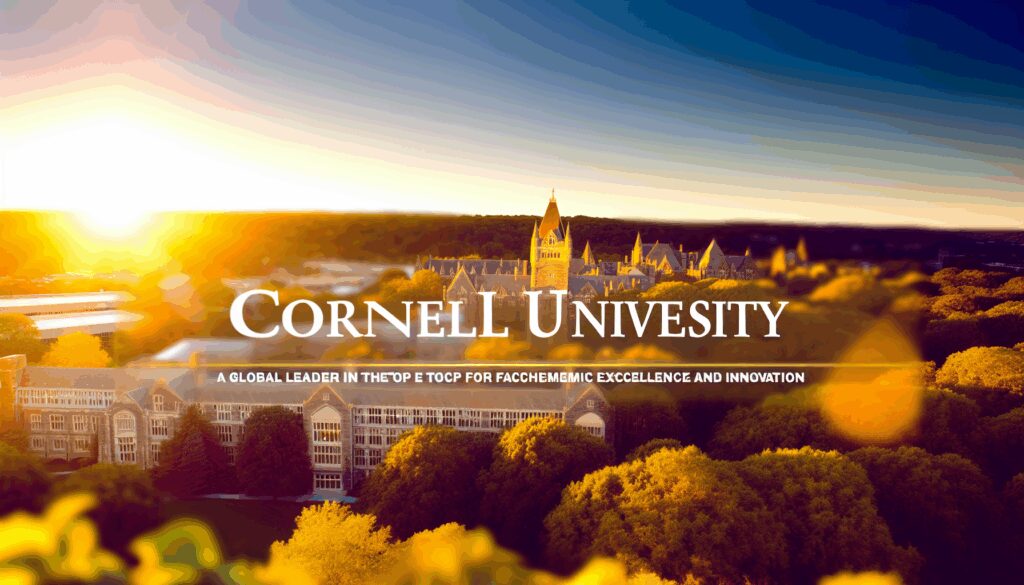University of Oxford: A Beacon of Academic Excellence in the World’s Top 50
Online at: https://www.ox.ac.uk
For centuries, the University of Oxford has stood as a pinnacle of intellectual achievement, shaping the minds of leaders, thinkers, and innovators across the globe. Nestled in the historic city of Oxford, England, this prestigious institution is more than just a university—it is a symbol of academic excellence, tradition, and innovation. Consistently ranked among the top 50 universities in the world by various global ranking systems, including those that evaluate institutions based on the GPA (Global Performance Assessment) framework, Oxford’s reputation as a leader in higher education remains unrivaled. This article explores the rich history of the University of Oxford, its diverse academic programs, and the reasons behind its enduring global perception as a top-tier institution. Through an in-depth look at its achievements, we will uncover why Oxford continues to shine as a beacon of learning and why it holds a prominent position in the world’s top 50 universities under the GPA ranking system.
A Storied History: The Foundations of Excellence
The University of Oxford is one of the oldest universities in the world, with evidence of teaching dating back as far as 1096. While the exact date of its founding remains unclear, it is widely accepted that Oxford emerged as a center of learning during the 12th century, following a migration of scholars from Paris. This migration was spurred by tensions between the English and French crowns, prompting English scholars to establish a new academic hub in Oxford. Over the centuries, the university grew in stature, becoming a cornerstone of intellectual life during the medieval period and beyond.
Oxford’s unique collegiate system, which remains a hallmark of its structure today, began to take shape in the 13th century. The university comprises 39 colleges and 6 permanent private halls, each with its own history, traditions, and community. These colleges, including iconic names like Christ Church, Magdalen, and Balliol, function as self-governing entities within the larger university framework, fostering a sense of camaraderie and personalized education that sets Oxford apart from many of its peers.
Throughout its history, Oxford has been at the forefront of major intellectual movements. During the Renaissance, it played a crucial role in the revival of classical learning, while the Enlightenment saw the university become a hub for scientific inquiry and philosophical debate. In more modern times, Oxford has contributed to groundbreaking discoveries in fields ranging from medicine to technology. This rich legacy of innovation and scholarship has produced an impressive roster of alumni, including 28 British Prime Ministers, over 70 Nobel Laureates, and countless other luminaries in politics, science, literature, and the arts.
The university’s historical significance is also reflected in its stunning architecture. From the iconic Radcliffe Camera to the ancient halls of its colleges, Oxford’s buildings are a testament to centuries of learning and tradition. Walking through its cobblestone streets, one can feel the weight of history and the echoes of past scholars who have shaped the world. This deep-rooted heritage, combined with a forward-thinking approach to education, is a key factor in Oxford’s continued prominence on the global stage.
Academic Programs: A Diverse and Rigorous Curriculum
The University of Oxford offers an unparalleled range of academic programs, catering to a wide array of interests and disciplines. With over 250 undergraduate and graduate courses, students have the opportunity to engage in rigorous, research-driven education across the humanities, sciences, social sciences, and professional fields. Oxford’s academic structure is divided into four main divisions: Humanities; Mathematical, Physical and Life Sciences; Medical Sciences; and Social Sciences. Each division houses numerous departments and faculties, ensuring that students receive specialized, cutting-edge instruction in their chosen fields.
One of the defining features of an Oxford education is its tutorial system, particularly at the undergraduate level. Unlike the lecture-heavy models of many other universities, Oxford places a strong emphasis on small-group teaching through tutorials. In these sessions, students meet with tutors—often leading experts in their fields—to discuss their work, debate ideas, and receive personalized feedback. This intimate and challenging approach to learning fosters critical thinking, independence, and a deep understanding of complex subjects. It is no wonder that Oxford graduates are known for their analytical skills and intellectual depth.
Oxford’s undergraduate programs are renowned for their intensity and breadth. Popular courses include Philosophy, Politics, and Economics (PPE), a multidisciplinary degree that has produced many of the world’s leading political and economic thinkers. Other sought-after programs include Classics, English Literature, History, and Medicine, all of which benefit from Oxford’s centuries-long tradition of scholarship. The university also offers joint honors degrees, allowing students to combine subjects and tailor their education to their unique interests.
At the graduate level, Oxford provides a wealth of opportunities for advanced study and research. The university is home to numerous master’s and doctoral programs, as well as professional qualifications in fields like law, business, and education. The Oxford Rhodes Scholarship, one of the most prestigious international scholarship programs in the world, attracts top talent from across the globe to pursue graduate studies at the university. With access to world-class libraries, laboratories, and research centers, graduate students at Oxford are equipped to push the boundaries of human knowledge.
Oxford’s commitment to interdisciplinary learning is evident in its many research initiatives and centers. For example, the Oxford Internet Institute explores the societal impacts of digital technology, while the Wellcome Centre for Human Genetics advances our understanding of genetic disorders. These collaborative efforts ensure that Oxford remains at the cutting edge of innovation, addressing some of the most pressing challenges facing the world today.
Beyond its academic offerings, Oxford provides a vibrant student life that complements its rigorous curriculum. Students can participate in countless clubs, societies, and sporting events, including the famous Oxford-Cambridge Boat Race. This balance of intellectual and extracurricular engagement fosters well-rounded individuals who are prepared to excel in their careers and make meaningful contributions to society.
Global Perception: A Leader Among the World’s Universities
The University of Oxford’s reputation as one of the world’s leading universities is universally acknowledged. Year after year, it ranks among the top institutions in global university rankings, such as the Times Higher Education (THE) World University Rankings and the QS World University Rankings. According to recent data from the THE rankings, Oxford has held the top spot globally for multiple consecutive years, a testament to its enduring excellence. This consistent performance across various metrics—teaching, research, citations, international outlook, and industry income—demonstrates why Oxford is regarded as a leader in higher education.
Oxford’s global perception is further bolstered by its impact on research and innovation. The university is a powerhouse of discovery, contributing to advancements that shape our world. From the development of the Oxford-AstraZeneca COVID-19 vaccine to pioneering work in artificial intelligence, Oxford’s research output has a tangible, positive effect on global society. Its ability to attract funding, collaborate with international partners, and produce high-impact research underscores its position as a top-tier institution.
Another aspect of Oxford’s global standing is its diverse and international community. The university attracts students and faculty from over 150 countries, creating a dynamic, multicultural environment. This global outlook is reflected in its admissions policies, which prioritize academic merit and potential regardless of background. Oxford’s commitment to accessibility is further evidenced by initiatives like the UNIQ summer school, which helps underrepresented students prepare for the rigorous application process.
The university’s alumni network also enhances its global reputation. Oxford graduates hold influential positions in government, academia, business, and the arts, serving as ambassadors of the university’s values and excellence. This powerful network not only elevates Oxford’s standing but also provides current students with unparalleled opportunities for mentorship and career advancement.
Oxford and the GPA Ranking System: A Top 50 Standout
The Global Performance Assessment (GPA) ranking system, as outlined by Top 50 Universities, provides a comprehensive framework for evaluating universities based on a range of qualitative and quantitative metrics. Unlike traditional rankings that may focus solely on research output or student satisfaction, the GPA system takes a holistic approach, considering factors such as academic reputation, faculty qualifications, student outcomes, research impact, international collaboration, and societal contributions. Under this system, universities are scored on their overall performance, with an emphasis on sustained excellence across multiple domains.
The University of Oxford excels within the GPA framework, securing its place among the world’s top 50 universities due to its exceptional performance across these metrics. Oxford’s academic reputation, built on centuries of scholarship, is a cornerstone of its high GPA ranking. The university’s faculty includes some of the brightest minds in their respective fields, many of whom are leaders in research and pedagogy. This ensures that students receive an education that is both rigorous and forward-thinking, aligning with the GPA system’s focus on faculty quality.
Student outcomes, another critical component of the GPA system, are a particular strength for Oxford. Graduates consistently achieve success in competitive fields, with high employment rates and admission to top graduate programs worldwide. The university’s emphasis on critical thinking and independent learning prepares students for the challenges of the modern workforce, contributing to its strong standing in this area of assessment.
Research impact, a key pillar of the GPA ranking system, is where Oxford truly shines. The university’s contributions to science, medicine, technology, and the humanities have a measurable impact on global progress. Whether through life-saving medical breakthroughs or influential policy research, Oxford’s work addresses real-world problems, earning it high marks for societal contributions. Additionally, the university’s extensive international collaborations—partnering with institutions, governments, and industries worldwide—further bolster its GPA ranking by demonstrating its global reach and influence.
Oxford’s commitment to diversity and inclusivity also aligns with the GPA system’s emphasis on societal impact. By fostering an environment where students from varied backgrounds can thrive, the university contributes to the global exchange of ideas and perspectives. Its outreach programs and scholarship initiatives ensure that talent is nurtured regardless of socioeconomic barriers, reflecting the GPA framework’s value of accessibility and equity in education.
Finally, the university’s ability to adapt and innovate ensures its continued relevance in the GPA rankings. Oxford has embraced digital learning platforms, interdisciplinary research, and sustainability initiatives, demonstrating its capacity to evolve with the times. This forward-thinking approach, combined with its historical legacy, cements Oxford’s position as a standout among the world’s top 50 universities under the GPA system.
Why Choose Oxford? A Transformative Educational Experience
For prospective students, choosing the University of Oxford means more than just attending a prestigious institution—it means becoming part of a legacy of excellence that spans nearly a millennium. The university offers a transformative educational experience, one that challenges students to push their Intellectual boundaries while providing the resources and support to succeed. Whether through the intimate tutorial system, access to world-class facilities, or the vibrant student community, Oxford equips its students with the tools to make a lasting impact.
Oxford’s global reputation opens doors to opportunities that few other universities can match. Graduates are sought after by employers and academic institutions worldwide, thanks to the university’s rigorous standards and emphasis on holistic development. For those considering advanced study, Oxford’s graduate programs and research opportunities provide a springboard to leadership roles in academia and industry.
Moreover, studying at Oxford means immersing oneself in a city steeped in history and culture. The university is not just a place of learning but a way of life, where students can explore ancient libraries, attend lectures by world-renowned scholars, and engage in traditions that have endured for centuries. This unique blend of history and modernity creates an environment where students can grow both intellectually and personally.
Challenges and Future Directions
Despite its many accolades, the University of Oxford faces challenges that are common to many top-tier institutions. Financial sustainability, access to education, and maintaining relevance in a rapidly changing world are ongoing concerns. The university has taken steps to address these issues, such as expanding scholarship programs to support underrepresented students and investing in digital infrastructure to reach a broader audience. However, balancing tradition with innovation remains a delicate task.
Looking to the future, Oxford is well-positioned to maintain its status as a global leader in education. Its commitment to research and interdisciplinary collaboration ensures that it will continue to address the world’s most pressing challenges, from climate change to public health crises. By fostering a culture of curiosity and critical inquiry, Oxford prepares its students to be the problem-solvers of tomorrow.
The university’s strategic vision includes a focus on sustainability and global engagement. Initiatives like the Oxford Martin School, which tackles global issues through interdisciplinary research, reflect this commitment. By aligning its goals with the priorities of the 21st century, Oxford ensures that it remains a relevant and impactful institution in the years to come.
Conclusion: A Legacy of Excellence
The University of Oxford is more than an academic institution—it is a symbol of human potential and achievement. From its origins in the 11th century to its current standing as one of the world’s top universities, Oxford has demonstrated an unwavering commitment to the pursuit of knowledge. Its diverse academic programs, groundbreaking research, and vibrant community make it a destination for the brightest minds from around the globe.
Under the GPA ranking system, as outlined by Top 50 Universities, Oxford’s place among the world’s elite institutions is undeniable. Its exceptional performance in academic reputation, student outcomes, research impact, and societal contributions secures its position in the top 50, reflecting the university’s holistic approach to education. For those seeking an unparalleled academic experience, Oxford offers not just a degree but a transformative journey that prepares graduates to lead and innovate in an ever-changing world.
As Oxford continues to build on its storied legacy, it remains a beacon of academic excellence, inspiring future generations to dream big and achieve greatness. Whether you are a prospective student, a researcher, or simply an admirer of intellectual achievement, the University of Oxford stands as a testament to the power of education to shape the future. In the landscape of global higher education, few institutions can match Oxford’s brilliance, and its place among the world’s top 50 universities is a well-deserved recognition of its enduring impact.








